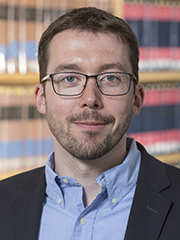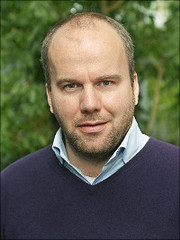Infection Research / Structural Biology
Infectious diseases pose a very specific threat to human health. Like cancer and cardiovascular diseases, they are among the most widespread diseases in the world and can even also jeopardize social structures. Thus, new viral infections such as Ebola, severe acute respiratory syndrome (SARS), Middle East respiratory syndrome (MERS), and influenza threaten the international cultural and economic exchange. In industrialized countries, antibiotic-resistant bacteria are increasingly fanning fears of hospitalization; and the poverty-related diseases of acquired immunodeficiency syndrome (AIDS), hepatitis, tuberculosis, and malaria continue to disrupt the humanitarian and economic balance among nations. Climate change and the growing global movement of people and goods are further exacerbating the regional and intercontinental spread of infectious diseases. Effective measures to combat infectious diseases are therefore of vital importance in scientific research—nationally and, especially, worldwide. Modern approaches to studying the relevant mechanisms in infection processes include host-pathogen interactions, structural biology analyses of protein complexes, systemic analyses of protein-protein interactions, and analyses of system changes (e.g., in an infected cell compared to an uninfected cell).
Infection research / structural biology is a major research focus of the Department of Chemistry within the MIN Faculty. Working groups are involved in projects to find new potential active substances to combat AIDS, in the identification of new antibiotics, and in research into the development of antibiotic resistance and as well as therapy-resistant viruses, influenza inhibitors, basic virological questions, carbohydrate-based interactions with cellular targets, nucleic acid-based intervention strategies, the development of tumor markers, and aspects of structural biology with a background in infection biology.
Department researchers are involved in the Hamburg Centre for Ultrafast Imaging (CUI), the German Centre for Infection Research (DZIF), the Centre for Structural Systems Biology (CSSB), and the Hamburg Advanced Research Centre for Bioorganic Chemistry (HARBOR). The Department of Chemistry conducts many of its projects within this research area in close cooperation with the University Medical Center Hamburg-Eppendorf as well as with nonuniversity research institutions based in greater Hamburg. These include the Heinrich Pette Institute Leibniz, Institute for Experimental Virology (HPI), the Bernhard Nocht Institute for Tropical Medicine (BNITM), and the Deutsches Elektronen-Synchrotron (DESY) on the research campus in Hamburg-Bahrenfeld.

Photo: UHH/CUI, Peter Garten
- Biohybrid materials based on proteins and nanoparticles
- Synthesis of nanoparticles using bio templates
- Structural studies: X-ray diffraction, SAXS, electron microscopy
- Catalytic nanomaterials
- Polymer-protein-hybrid materials for drug delivery
- Protein crystallography
- Protein redesign using computational methods

Photo: UHH/Betzel
- Structural Infection Biology
- Crystallogenesis
- Structure and Dynamics of Nucleic Acids
- Specific Plant Lectins
- Venom Proteomics

![gks9897-180x240[1]](https://assets.rrz.uni-hamburg.de/instance_assets/fakmin/41180260/gruenewald-kay-180x240-4863b344aab52f78746a6d4a2aa91ed68d864d5e.jpg)
- Strukturelle Zellbiologie der Viren

Photo: Ralph Holl
- Inhibitors of lipid A biosynthesis as antibiotics
- Structure-activity relationships of LpxC inhibitors
- Inhibitors of zinc-dependent enzymes (LpxC, HDACs, MMPs)
- Stereoselective synthesis
- Synthesis of C-Glycosides

Photo: UHH
- RNA structure and function
- Protein translation and co-translation folding
- System biology of translation
- Tissue- and cell-specific translation
- Disease-related perturbations of translation

- Molekulare Mechanismen bakterieller Infektionen
- Strukturelle Systembiologie
- Struktur/Funktionsanalyse bakterieller Sekretionssysteme
- Mechanismen des Proteintransports
- Hybridansätze in der Strukturbiologie
- Molekulare Biophysik

Photo: Dr. Thomas Lemcke
- Antifouling
- Surfaces and contact biocides
- Chemical modeling of biofilms
- Tumor targeting
- Chelators for MRT, PET and SPECT

Photo: Chris Meier
- Nucleoside/Nucleotide Chemistry
- Pronucleotide Development
- Antisense-Oligonucleotide Chemistry
- stereoselective Synthesis of carbocyclic Nucleoside Analogues
- Molecular Basis of the induction of chemical carcinogenesis (Synthesis of Arylamine-modified Oligonucleotides)
- Synthesis of Sugar-Nucleotide-Pyrophosphates
- Solid-Support based Organic Synthesis

Photo: Henning Tidow
- Struktur und Funktion von Membranproteinen
- Calcium-Transport durch biologische Membranen
- Protein-Kristallographie
- zeitaufgelöste Strukturbiologie
- genetisch kodierter Einbau von unnatürlichen Aminosäuren

Photo: Daniel Wilson
- The Ribosome and Regulation of Translation
- Ribosome-targeting Antibiotics
- Antibiotic Resistance Mechanisms
- Translation stalling
- Cryo-electron microscopy
